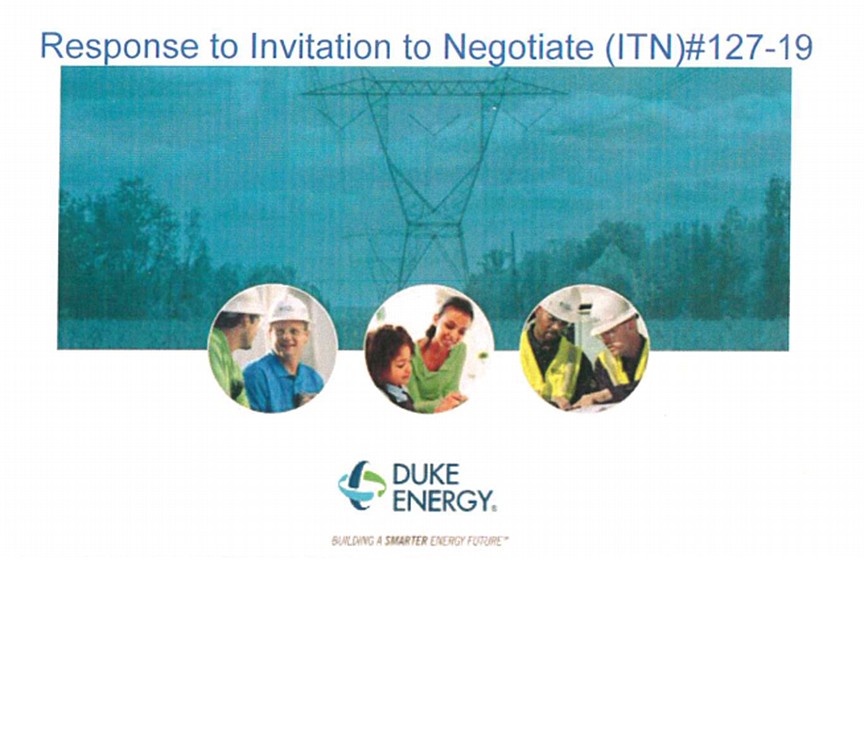
Seven of the nine companies selected to move forward in the invitation to negotiate process for the potential sale of JEA all wanted to acquire the city-owned utility’s water and power business.
The seven whose information is posted on whatsnextjax.com all agreed to the minimum requirements set out by the city:
They included $3 billion in value to the city, $400 million distributed to customers, at least three years of guaranteed base rate stability and a commitment to a new headquarters Downtown.
JEA posted responses to the invitation to negotiate on whatsnextjax.com for public documents, starting with the initial replies to its ITN along with information about becoming community-owned and making an initial public offering.
The JEA board voted Dec. 24 to end the “Strategic Alternatives Invitation to Negotiate process” after City Council members, the Jacksonville Civic Council, the public and others increasingly raised concerns about the potential sale. Mayor Lenny Curry asked board Chair April Green to end the process.
Since Dec. 17, the board put former CEO Aaron Zahn on administrative leave as the city Office of General Counsel negotiates to terminate his contract. JEA Vice President and Legal Officer Lynne submitted her letter of resignation to the General Counsel’s office effective Dec. 19. And JEA confirmed Dec. 27 that JEA Chief Financial Officer Ryan Wannemacher no longer works for the city-owned utility.
The JEA board directed the leadership team to release information about the ITN responses, starting Dec. 27.
The information is posted for 14 of the 16 respondents. American Water Works Co. Inc. and NextEra Energy Inc. (the parent company of Florida Power & Light) bids are not. “Legal approval for publication of this information is forthcoming,” says those links.
Nine were chosen to move forward, including American Water Works and NextEra.
While most of the documents from the seven responses focused on the financial health and accomplishments of the companies seeking to negotiate, there were some differences in their proposals:
American Public Infrastructure LLC, Chicago:
• Would keep JEA a public company, owned by pension funds, that would save $1 billion in taxes.
• Could pay $1 billion more upfront compared to privatization.
• Lower rates to consumers (at least 15% lower than privatization)
Duke Energy, Charlotte, North Carolina:
• Duke would look to leverage its scale and efforts across its jurisdictions to drive similar levels of innovation for JEA's customers and communities, as well as the city of Jacksonville.
Emera, Nova Scotia:
• The parent company of TECO said JEA would be guided by a board with a majority of its members being local representatives from the Jacksonville community. The company said its size and experience will benefit JEA.
JEA Public Power Partners, Baton Rouge, Louisiana:
• Proposed a 30-year concession agreement with the city that would allow Jacksonville to retain ownership of JEA’s assets. It said the city could get its money faster because the utility is not being sold.
• $3.52 billion to JEA in the form of debt relief
• Three years of a $120 million annual contribution to the city
• Bernhard Capital will commit to creating up to 300 jobs.
IFM Investors PTY LTD, New York City:
• JEA would not be integrated into another utility, but be part of an infrastructure fund delivering returns to a pension fund.
MIRA (Macquarie Infrastructure and Real Assets Inc.), New York City:
• JEA will continue to be an independent utility managed in Jacksonville by the JEA board.
• Would consider other structures with less than 100% control, so long as it had the majority.
E&W Development Corp., Chicago:
• Would confer the electric system and the waste and wastewater systems into traditional investor-owned utilities.
• Commits to provide the city of Jacksonville and the Duval County Public School System with 100% renewable electricity by 2030.